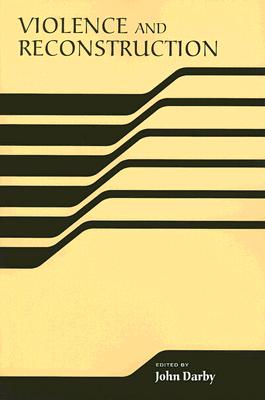"This well-organized and effective book could not be timelier. It sets out, and achieves, an ambitious program for itself." -Andrew Williams, University of Kent "This volume makes an original contribution to the field and will be read with great interest by scholars, graduate students, and the policy community. The contributors present an important set of arguments that engage the scholarly and policy-oriented debates about peace implementation and peacebuilding by teasing out the complex and sometimes counterintuitive relationships between violence and peace." -Terrence Lyons, Institute for Conflict Analysis and Resolution, George Mason University This is the first book to focus on the effects of violence in internal conflicts after peace agreements have been signed. Since the mid-1990s many peace processes, including those in Israel-Palestine, Guatemala, El Salvador, and Northern Ireland, have reverted to violence while seeking to implement formal peace agreements. In all these cases the persistence and forms of violence have been among the main determinants of the success or failure of the peace process. Violence and Reconstruction adopts a four-part analysis, examining in turn violence emanating from the state, from militants, from destabilized societies, and from the challenge of implementing a range of policies including demobilization, disarmament, and policing. Leading scholars explore in detail each of these aspects of postwar violence. Their findings draw attention to the increased willingness of the state to turn to militias to carry on violence by proxy; to the importance of distinguishing between the aims and actions of different militant groups; to a postwar rise in violent conventional crime; and to the importance of the proper restoration of civil society.
| FindBook |
有 1 項符合
Violence And Reconstruction的圖書 |
 |
Violence And Reconstruction 作者:Darby 出版社:University of Notre Dame Press 出版日期:2005-12-22 語言:英文 規格:平裝 / 178頁 / 23.1 x 17 x 1.3 cm / 普通級 |
| 圖書館借閱 |
| 國家圖書館 | 全國圖書書目資訊網 | 國立公共資訊圖書館 | 電子書服務平台 | MetaCat 跨館整合查詢 |
| 臺北市立圖書館 | 新北市立圖書館 | 基隆市公共圖書館 | 桃園市立圖書館 | 新竹縣公共圖書館 |
| 苗栗縣立圖書館 | 臺中市立圖書館 | 彰化縣公共圖書館 | 南投縣文化局 | 雲林縣公共圖書館 |
| 嘉義縣圖書館 | 臺南市立圖書館 | 高雄市立圖書館 | 屏東縣公共圖書館 | 宜蘭縣公共圖書館 |
| 花蓮縣文化局 | 臺東縣文化處 |
|
|
圖書介紹 - 資料來源:博客來 評分:
圖書名稱:Violence And Reconstruction
內容簡介
作者簡介
John Darby is professor of comparative ethnic studies at the Kroc Institute at the University of Notre Dame, where he is Research Director and heads the Research Initiative for the Resolution of Ethnic Conflict (RIREC). CONTRIBUTORS: John Darby, Kristine Hoglund, I. William Zartman, Marie-Joelle Zahar, Virginia Gamba, Dominic Murray, Roger Mac Ginty, and Timothy D. Sisk.
|











